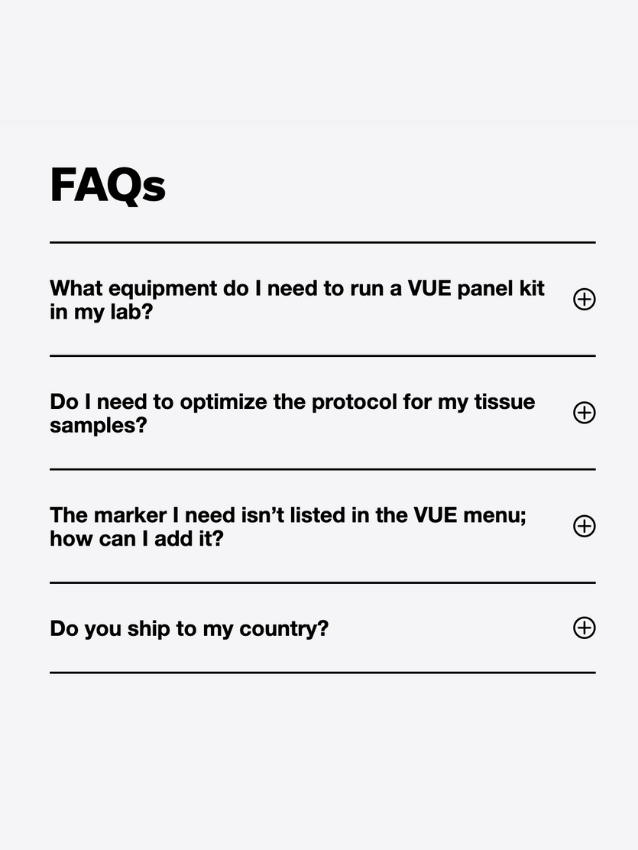

Jay Lee, MD, PhD
Director of R&D and Innovation, Ultivue
Importance of Spatial Distribution Insight from Clinical Biopsies
55 minutes
Relevant for
InSituPlex
Description Current immuno-oncology research is revealing diagnostic, prognostic and predictive cell states and identities with implications for drug and diagnostic development as well as diagnostic testing. However, it is challenged in that only a minority of patients respond. This is especially prevalent using therapies that rely on immune activation such as checkpoint inhibitors, due to the complex and heterogeneous immune escape mechanisms which can develop in each patient. Therefore, the development of robust biomarkers, enabling rational patient selection and the design of precise combination therapies, is key for the continued success and improvement afforded by this valuable treatment. The need for spatial distribution in clinical biopsies is now more than ever. Today, spatial biology is finally giving researchers much needed contextual information resolving cells and biomarkers. It provides a comprehensive study of cellular composition, cellular functions and cell-cell interactions within the tumor microenvironment (TME). Watch this to learn how spatial biology can provide insights into the spatial distribution and cellular interactions in clinical tumor biopsies.
Webinar Learning Objectives
Meet the hosts
Jay Lee is a highly published MD/PhD with over 25 years’ scientific experience, most recently leading a successful research group at Cold Spring Harbor Laboratories (CSHL) that focused on innovative imaging and molecular sequencing methods for tracking genes, molecules and cells to understand how cancer cells arise and evolve. Prior to his tenure at CSHL, Jay was a Scientist at the Wyss Institute for Biologically Inspired Engineering in Boston and spent many years as a Postdoctoral Research Fellow under Professor George Church at Harvard Medical School, Boston. His highly cited work on the generation and in situ sequencing of whole transcriptome libraries has been seminal to how we consider highly multiplexed and spatially resolved techniques today.







